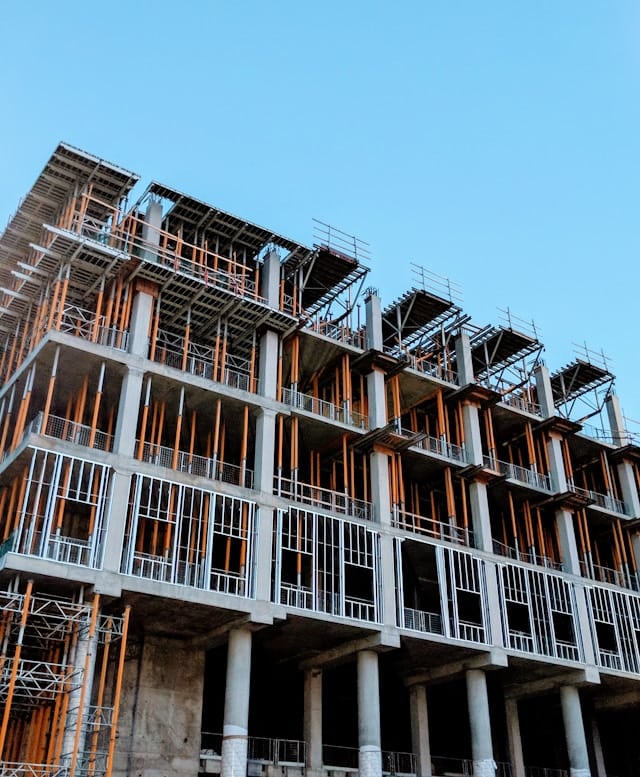Creating a comprehensive waste management plan for large-scale construction projects is not only an environmentally responsible approach, but also a financially beneficial one. Waste reduction, reuse, and recycling strategies can significantly reduce disposal costs. Additionally, sustainable waste management practices can improve your company’s image, contributing to its social responsibility profile, and can even bring about new project opportunities.
In this article, you will learn how to create an efficient waste management plan that will control and reduce waste, promote recycling and ensure proper disposal practices on your construction site. We will explore strategies for waste reduction, the importance of recycling and reuse, and how to ensure that waste disposal complies with environmental regulations.
Dans le meme genre : How to Manage and Overcome the Bureaucratic Challenges in Large-Scale Developments?
Evaluating Existing Waste Management Strategies
Before initiating a new waste management plan, it’s essential first to evaluate existing strategies on your construction site. This step includes identifying the types and quantities of waste currently generated, understanding how and where the waste is disposed of, and determining the costs associated with waste disposal.
You should also look into the current recycling practices. Identify what materials are being recycled, how much is being recycled and whether these materials could be better managed. It’s also vital to understand your site’s current waste disposal practices. Are you complying with all local and national regulations? Are there more sustainable disposal options that you could be using?
A découvrir également : What Are the Best Practices for Achieving Net-Zero Carbon Emissions in High-Rise Residential Buildings?
Implementing Waste Reduction Techniques
Waste reduction is a fundamental element of a comprehensive waste management plan. The aim is to minimise the amount of waste generated on the site, hence reducing the costs associated with its disposal and the environmental impact of the project.
There are several strategies to consider when aiming to reduce waste on construction sites. These may include:
- Modifying designs to use less material
- Ordering only the amount of material needed for the project
- Storing materials correctly to avoid damage and waste
- Training staff on efficient material use and waste reduction practices
Implementing waste reduction techniques is not only good for the environment but can also save you money by reducing the quantity of materials you need to purchase and the amount of waste you have to dispose of.
Promoting Recycling and Reuse of Materials
Recycling and reusing materials are crucial components of sustainable waste management. A well-planned recycling program can divert a significant amount of waste from landfill, conserve resources and reduce the environmental impact of building.
Identify materials that can be recycled or reused on your site. Common construction waste materials that can be recycled or reused include concrete, wood, metal, cardboard, plastic, and asphalt.
You should implement a system for separating recyclable materials from general waste. This might involve designated bins or containers for different types of waste, clear signage, and training for staff on proper waste segregation.
Management of Waste Disposal
Waste disposal is the final stage in a comprehensive waste management plan. Despite efforts to reduce, recycle, and reuse, there will always be some waste that needs to be disposed of. It’s imperative to ensure this is done in an environmentally responsible manner, in compliance with local regulations.
You should identify local waste removal companies that can handle your construction waste. Ensure they are licensed and comply with all environmental regulations. It’s also essential to keep records of all waste disposed of, including types of waste, quantities, disposal methods, and disposal locations.
Incorporating Sustainable Practices into your Plan
Incorporating sustainable practices into your waste management plan can have both environmental and financial benefits. These practices can include sourcing sustainable building materials, implementing energy-efficient practices on site, and establishing partnerships with waste recycling companies.
Sustainable practices not only reduce the environmental impact of your construction project, but they can also improve your company’s reputation and open up opportunities for future projects. Clients are increasingly seeking out construction companies that demonstrate a commitment to sustainability and environmental responsibility.
Creating a comprehensive waste management plan for large construction projects is an important task, but with careful planning and implementation, you can significantly reduce waste, promote recycling, and ensure proper disposal practices, leading to more sustainable and profitable construction projects.
Streamlining the Management of Construction Demolition Waste
Streamlining the management of construction demolition waste is a crucial element of your comprehensive waste management plan. As a rule, construction projects generate a substantial amount of such waste, which often includes concrete, wood, asphalt, metal, bricks, and insulation. With adequate planning and effective waste management practices, it is possible to minimize the costs and environmental impact of dealing with this waste.
Your plan should entail identifying opportunities for reuse and recycling. For instance, concrete and asphalt can be crushed and reused for road base, bricks can be cleaned and reused for building, metals can be melted and reformed, and wood can be used for mulch or biomass fuel.
The management of demolition waste also includes the disposal of hazardous materials. It’s crucial to identify any hazardous waste, such as asbestos, lead-based paint, or chemical waste, and ensure it is disposed of appropriately in compliance with all local regulations. You should always involve professionals in the handling of hazardous waste to protect your team’s health and safety and to ensure legal compliance.
The ultimate goal is to minimize the waste that goes into landfills. By improving the sorting and recycling of demolition waste, you can significantly reduce landfill costs and the environmental impact of your project.
Devising Effective Strategies for Solid Waste Management
Solid waste management is another aspect of waste management that is critical for construction projects. Solid waste includes unwanted or unusable materials left over from construction activities. Implementing effective strategies for managing this type of waste can significantly reduce its volume, lower disposal costs, and lessen its environmental impact.
Start by identifying the types of solid waste your construction project generates. This can include packaging waste, food waste from on-site canteens, and non-hazardous building materials. Once you have a clear understanding of the waste generation patterns, devise strategies for minimizing the waste. This could involve measures such as providing reusable cutlery and plates in canteens, implementing strict policies on packaging, and promoting recycling and composting.
It’s also crucial to establish a systematic waste segregation process. This involves setting up clearly marked bins for different types of waste and providing training and guidelines for your staff on proper waste segregation. This will not only facilitate recycling but also help to reduce the amount of solid waste going to landfill.
Conclusion: Ensuring the Sustainability of Construction Projects
Creating a comprehensive waste management plan is a cornerstone in ensuring the sustainability of large construction projects. Through effective waste reduction, reuse, recycling, and disposal practices, you can significantly minimize the environmental impact of your construction activities.
Moreover, sustainable waste management practices can enhance your company’s social responsibility profile. This can be very beneficial, as clients and consumers nowadays increasingly value businesses that demonstrate commitment to environmental sustainability. This can, in turn, open up new project opportunities and contribute to your company’s long-term success.
Remember, a comprehensive waste management plan doesn’t just benefit the environment. It also directly impacts your bottom line by reducing waste disposal costs. With careful planning and implementation, waste management can be transformed from a challenge into an opportunity for cost reduction and sustainability enhancement.
By continuously revising and improving your waste management practices, you can strive towards zero waste, contributing to a more sustainable future for the construction industry and our planet.










